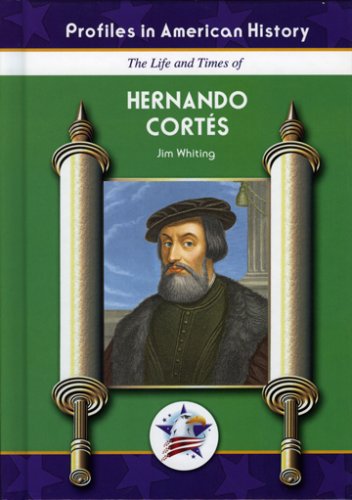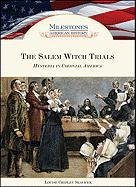-
The Raid on Harpers Ferry: John Brown's Rebellion
Samuel Willard Crompton
Library Binding (Chelsea House Pub, Feb. 1, 2010)In October 1859, a group of 22 men led by abolitionist John Brown sought to ignite a slave revolt. They believed that a violent rebellion was the only way to change the system and bring down slavery's hold on the South. They came at harvest time, believing that this was when the overworked slaves would be most eager to revolt. Brown's men took and briefly held the foremost arsenal south of the Mason-Dixon Line, but when a massive uprising didn't occur, they were soon captured and eventually found guilty of treason. Their audacity made them heroes to some, even as they were reviled by many for their use of deadly force. This event was one of the many catalysts leading up to the Civil War. In The Raid on Harpers Ferry: John Brown's Rebellion, learn how this action to incite a slave rebellion was viewed 150 years ago and the repercussions it has had on the United States. Y
Y
-
The Invention of the Moving Assembly Line: A Revolution in Manufacturing
Dennis Abrams
Hardcover (Chelsea House Publications, Aug. 1, 2011)Though the automated assembly line seems the most logical and natural of ideas, its development took place over a long period of time. It would take Henry Ford and his dream of building an affordable Model T automobile to put all the pieces together. In doing so, Ford changed the world forever. The invention impacted prices, wages and demand; labor unions; and even popular culture. In The Invention of the Moving Assembly Line, learn how one simple invention helped to transform America and how its impact is still being felt today. Z
Z
-
Hernando Cortes
Jim Whiting
Library Binding (Mitchell Lane Publishers, Dec. 15, 2006)The Spanish explorer Hernando Cortés is a very controversial figure. To some people, he was heroic. Even though he was greatly outnumbered, he was able to defeat the Aztec Emperor Montezuma and conquer the Aztec empire because of his personal courage and leadership abilities. The Aztec empire was centered in modern-day Mexico. Its religion was based on human sacrifice. Cortés replaced it with Christianity. To others, including many Mexicans, he was a villain because he destroyed the Aztecs way of life. They believed he was a cruel man. He was also a symbol of Spanish domination. When Mexico became independent from Spain in 1821, its people tried to remove their memories of him. Either way, one thing is certain. Hernando Cortés was one of the most important figures in the history of the New World. R
R
-
The Transcontinental Railroad in American History
R. Conrad Stein
Library Binding (Enslow Pub Inc, Oct. 1, 1997)Describes the building of the first railroad to join the eastern and western part of the United States and the effect of this transcontinental link on the future development of the country
-
The Salem Witch Trials: Hysteria in Colonial America
Louise Chipley Slavicek
Hardcover (Chelsea House Publications, July 1, 2011)No further information has been provided for this title. Z
Z
-
The Scopes Monkey Trial
Samuel Willard Crompton
Library Binding (Chelsea House Pub, Jan. 1, 2010)After the passage of the Butler Act, which made it unlawful for a state-funded school in Tennessee to teach that humans evolved from lower organisms, 24-year-old high school teacher John Scopes intentionally violated the law. Arrested and charged on May 5, 1925, Scopes became the centerpiece in a trial that pitted two of the finest legal minds of the time against one another. Prosecutor William Jennings Bryan's participation in the trial served as the capstone to his prior unsuccessful advocacy to cut off funds to schools that taught evolution. Prominent trial attorney Clarence Darrow, an agnostic, spoke for the defense. This case, which was the first to be broadcast via radio, was a critical turning point in the creation vs. evolution controversy that continues today. The Scopes Monkey Trial has since been fictionalized in a play, a film, and three television films, all called Inherit the Wind. The Scopes Monkey Trial: Debate over Evolution explains how this pivotal court case shaped the way evolution and creationism are approached in classrooms. Z+
Z+
-
The California Gold Rush: Transforming the American West
Liz Sonneborn
Library Binding (Chelsea House Publications, Nov. 1, 2008)'The California Gold Rush' explores how this pivotal era introduced new ideas about work and health, luck and greed, and success and failure, into the way Americans looked at their lives, their livelihoods, and most of all, themselves. S
S
-
The African-American Struggle for Legal Equality in American History
Carole Boston Weatherford
Library Binding (Enslow Pub Inc, Oct. 1, 2000)Traces the African American battle over racism, from slavery to the present, to become constitutionally and legally equal to other American citizens. U
U
-
The World War II D-Day Invasion in American History
R. Conrad Stein
Library Binding (Enslow Pub Inc, Jan. 1, 2004)Discusses the events surrounding the D-Day invasion of Europe by Allied Forces on June 6, 1944.
-
Blazing the Wilderness Road With Daniel Boone in American History
Carl R. Green
Library Binding (Enslow Pub Inc, Dec. 1, 2000)Discusses the Wilderness Road, a trail providing a route from Tennessee to Kentucky in the late eighteenth and early nineteenth centuries, Daniel Boone's role in its development, and life on the trail.
-
The Alamo: The Battle for Texas
Shane Mountjoy
Library Binding (Chelsea House Publications, Jan. 1, 2009)This book provides details of the history surrounding the Alamo, and examines this episode in the Texas war of independence against Mexico. Y
Y
-
American History 2
Matthew Downey
Hardcover (McGraw-Hill Education, Sept. 9, 2005)Engaging four-color designUnit openers with timelines and discussion questionsPre-reading strategies and introduction activitiesReading and vocabulary supportSmall-group activitiesWriting activitiesPrimary source documentsChapter summaries with review questionsEnd of chapter skill builder